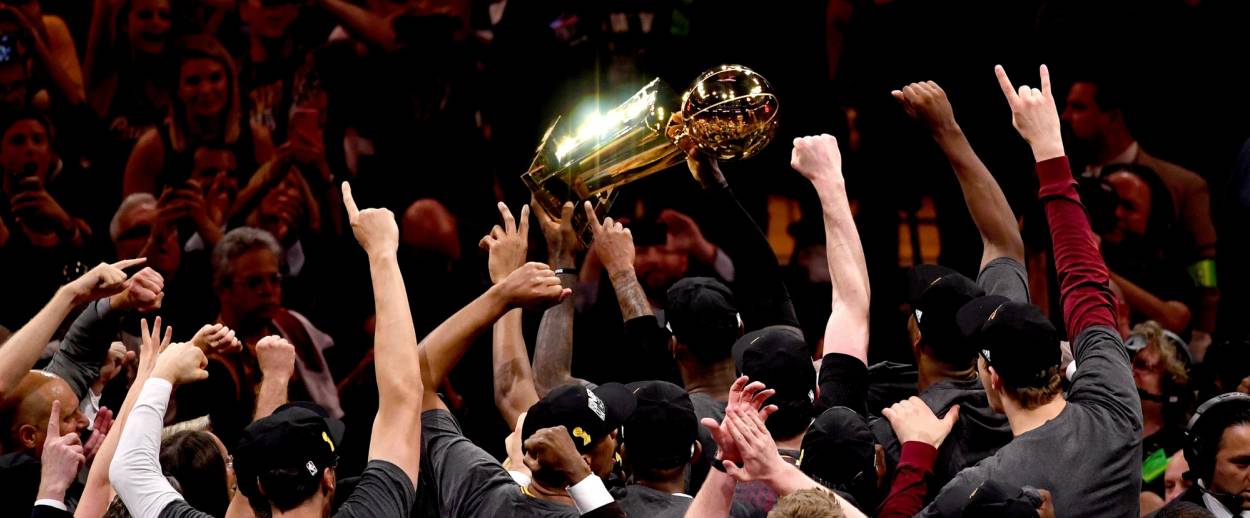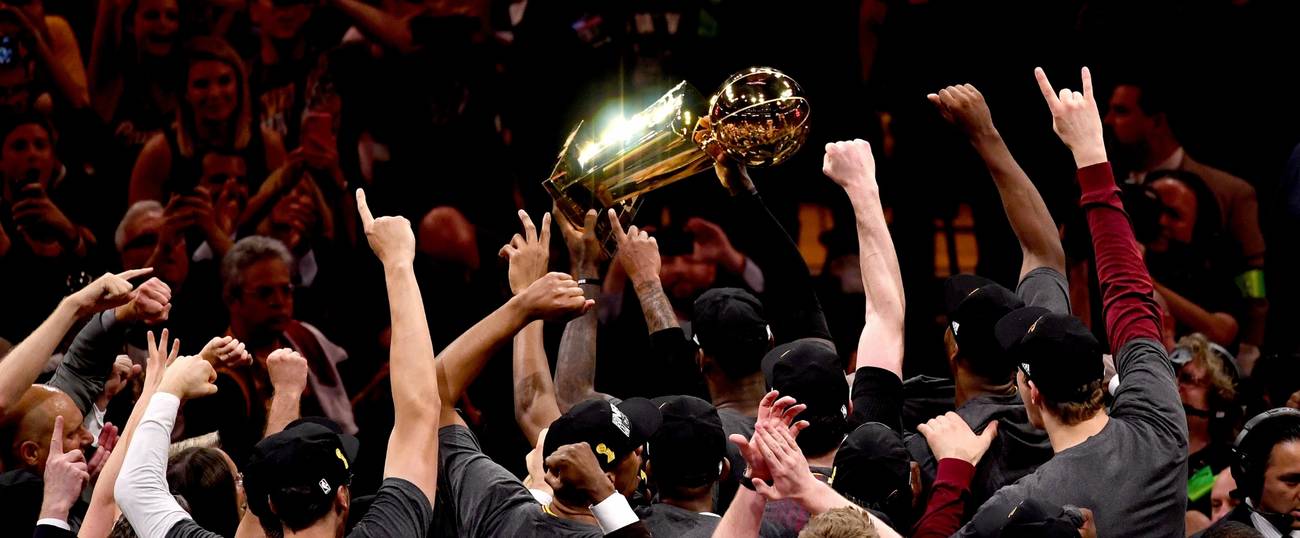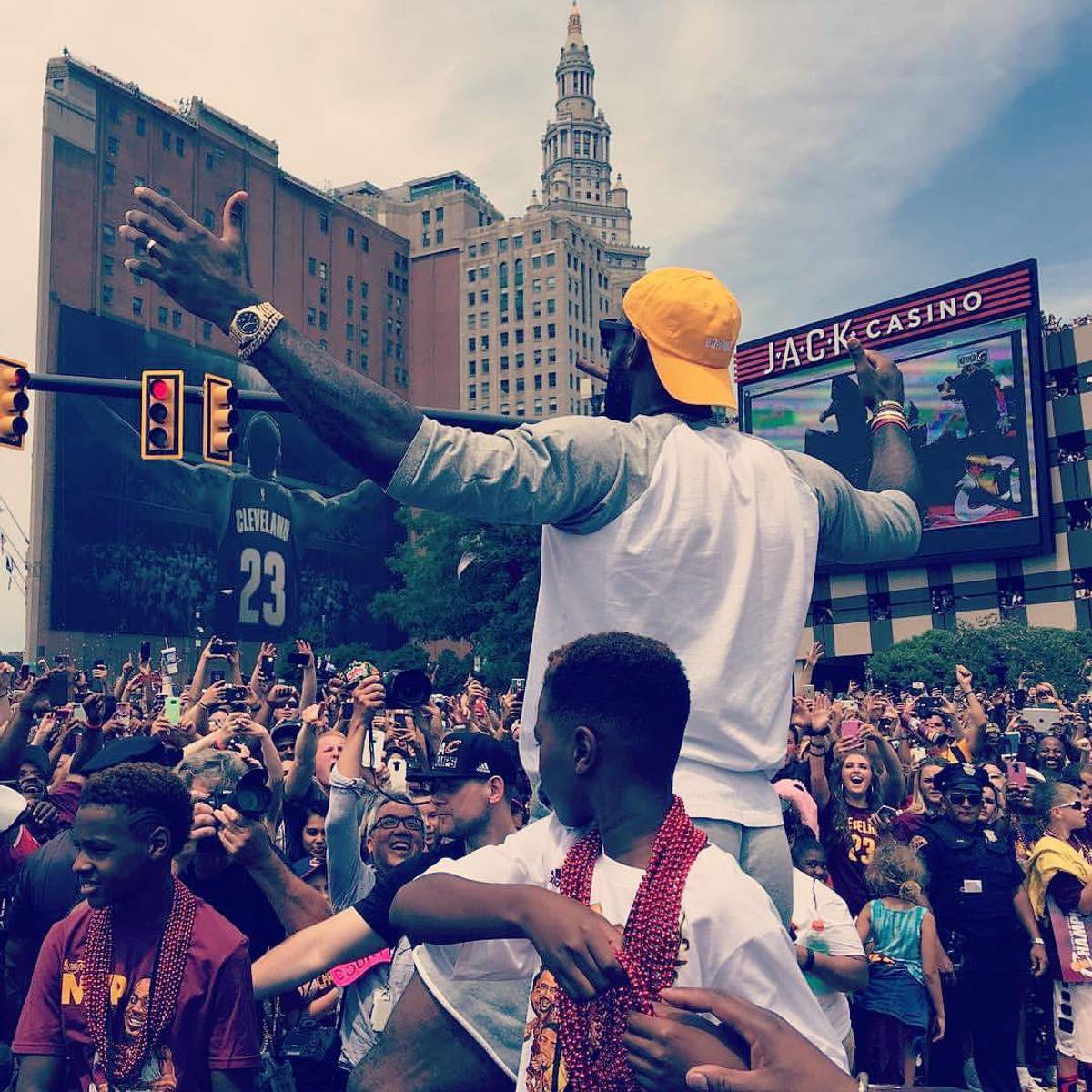The Cleveland Cavaliers, Maimonides, and Redemption
After years of suffering, the Cavs—and the city of Cleveland—can celebrate. What did it take to earn their salvation?





On Wednesday, LeBron James, the best basketball player on the planet, soaked in the Cleveland sun—and the ardor of an estimated 1.3 million fans—with a bottle of Moët in his hand, and an unlit cigar in his mouth. “2016 World Champions, Cleveland, Ohio!” he proclaimed. “Yessir!”
The Cleveland Cavaliers’ championship parade celebrated a comeback for the ages. Last Sunday, the Cavs became the first team to win an NBA championship after being down 3 games to 1—and they did so against a team boasting the best regular-season record in NBA history. It was one of the greatest feats in sports. It also strikes me as an against-all-odds accomplishment Maimonides would have lauded.
In the 12th century, the Rambam wrote that true, “complete repentance” only occurs when one is in the same exact situation that one was in at the time of the first sin, and, on the second try, overcomes the temptation to sin again. In Mishneh Torah (“Laws of Repentance” 2: 1) Maimonides’ writes:
What constitutes complete repentance? He who is confronted by the identical situation wherein he previously sinned and it lies within his power to commit the sin again, but he nevertheless does not succumb because he wishes to repent, and not because he is too fearful or weak [to repeat the sin]. How so? If he had relations with a woman forbidden to him and he is subsequently alone with her, still in the throes of his passion for her, and his virility is unabated, and [they are] in the same place where they previously sinned; if he abstains and does not sin, this is a true penitent.
The Cavaliers committed no moral sin, as repentance implies. (I know, I know: What about “The Decision” by LeBron, you’ll say, but can we really call it a “sin”?) But they did commit what you might call “sports sins”: They have repeatedly failed to deliver their city a championship, even when they were positioned to do so. (A “sports sin” is not a real, moral sin, it’s just a “sin” in the context of sports, such as drafting Anthony Bennet with the No. 1 overall pick, or failing to surround LeBron with a more solid supporting cast during his first Cleveland tenure.) Not only did the Cavaliers have a need to repent from these sports sins, but the city of Cleveland also had a desperate need for redemption.
Moreover, Maimonides wrote (in “Laws of Repentance” 7:5) that repentance is the prerequisite for redemption:
All the prophets – all of them – commanded [us] with regard to repentance, and Israel is redeemed only through repentance. And the Torah has already promised that Israel will ultimately perform teshuva at the end of their exile, and they will [then] be immediately redeemed, as it says, ‘It shall be, when all these things come upon you – the blessing and curse which I have placed before you – you shall return unto your heart…and you shall return unto the Lord your God…and the Lord your God shall restore your exile…
“I don’t know why we want to take the hardest road,” said James, the unanimous Finals MVP, immediately after the thrilling Game 7 victory. Then, in a remark that may reveal that “King James” may also be basketball’s best current theologian, he added: “I don’t know why the man above gave me the hardest road, but there’s nothing the man above going to put new situations that you can’t handle. And I just kept the same, positive attitude like, instead of saying why me? I was saying this is what he wanted me to do. Cleveland, this is for you!”
For over fifty years, the city had been achingly close to achieving sports salvation, only to have come up tantalizingly short every. single. time. Cleveland, as LeBron James reminded us in his post-Finals victory interview, has had to endure “The Fumble,” “The Drive,” José Mesa’s inability to close out Game 7 of the 1997 World Series, the Cavaliers’ two NBA Final failures, and plenty of other moments of sports misery in between. (See also: Michael Jordan’s “The Shot” over Craig Ehlo, the Browns moving from Cleveland to Baltimore in 1995, Johny Manziel…the list goes on and on).
Last year, playing the similar Golden State team in the Finals, the Cavaliers took a 2-1 lead, but with Kyrie Irving unable to play due to injury, their championship hopes soon evaporated, and they lost the next three games. But this time—one year later, facing the Golden State Warriors once again in virtually the same exact situation they were in at the time of their previous failure—they passed the test with flying wine, gold, and navy blue colors.
True “repentance”—perfect, pure, “complete redemption”—was achieved. Thus, the Cleveland Cavaliers had been redeemed, and the city that had been forsaken achieved, at long last, its much-deserved sports salvation.
Daniel Ross Goodman is a writer, rabbi, and Ph.D. candidate at the Jewish Theological Seminary (JTS) of America in New York.